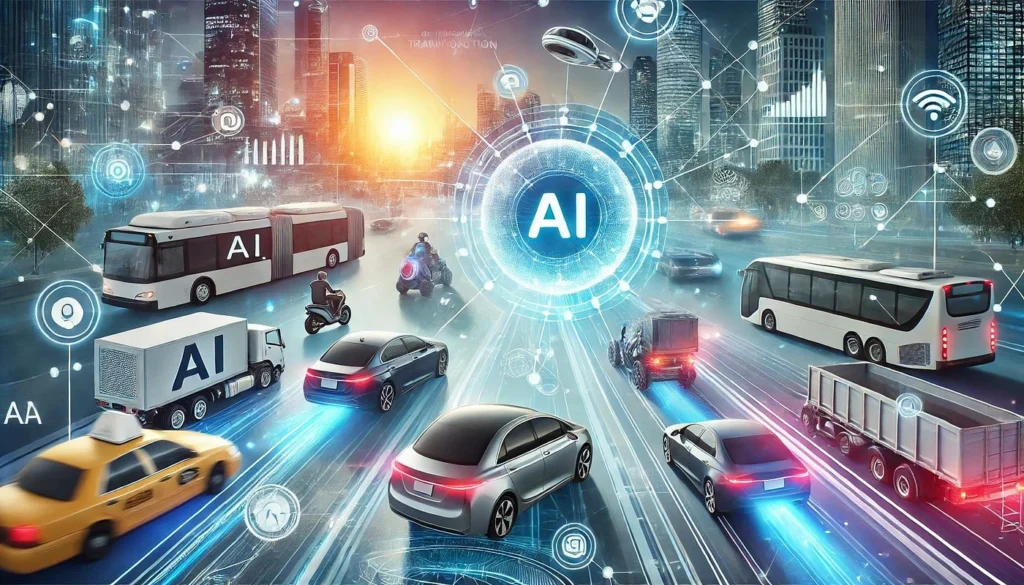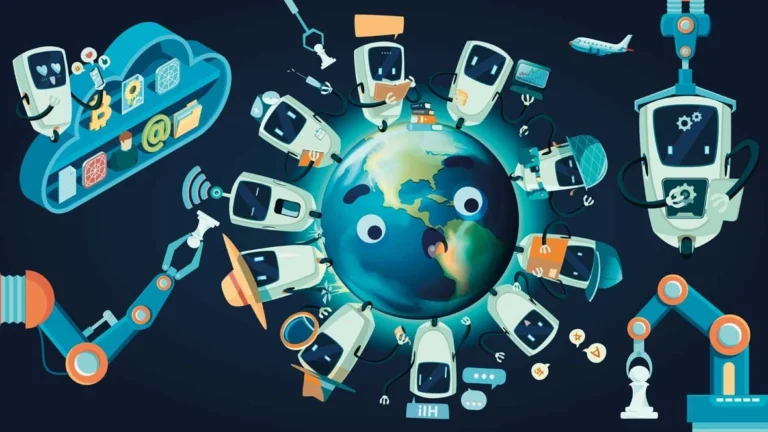Introduction
Artificial Intelligence (AI) is no longer a concept of the future—it’s transforming the way we live, work, and interact with technology today. From self-driving cars to virtual assistants like Siri and ChatGPT, AI is shaping the modern world in ways we never imagined. But what does the future hold for AI? In this blog, we’ll explore how AI is changing our world and what we can expect in the coming years.
1. AI in Everyday Life
AI has already become a part of our daily lives, often in ways we don’t even realize.
Examples of AI in Daily Use:
- Voice Assistants – Alexa, Google Assistant, and Siri help with tasks like setting reminders and playing music.
- Smart Recommendations – Netflix, YouTube, and Spotify use AI to suggest content based on your preferences.
- Chatbots and Customer Service – Many businesses use AI-powered chatbots to handle customer inquiries efficiently.
Future Outlook:
AI-powered personal assistants will become even more advanced, understanding human emotions and preferences better than ever.
2. AI in Healthcare

AI is revolutionizing healthcare, making diagnoses more accurate and treatments more personalized.
How AI is Improving Healthcare:
- Early Disease Detection – AI can detect diseases like cancer at an early stage, improving survival rates.
- Robot-Assisted Surgeries – AI-powered robotic systems are enhancing precision in complex surgeries.
- Virtual Health Assistants – AI chatbots provide medical advice and mental health support.
Future Outlook:
AI could lead to fully automated hospitals where robots assist in surgeries, and AI diagnoses diseases more accurately than doctors.
3. AI in Business and Jobs
Businesses are rapidly adopting AI to streamline operations and improve efficiency.
AI in Business Today:
- Automation – AI automates repetitive tasks, saving time and resources.
- Data Analysis – Companies use AI to analyze big data and make better decisions.
- AI in Hiring – AI helps in recruitment by scanning resumes and predicting candidate suitability.
Future Outlook:
While AI will create new job opportunities, it will also replace many traditional jobs. The future workforce must adapt by developing AI-related skills.
4. AI in Transportation

Self-driving technology is set to revolutionize the way we travel.
Current AI Advancements in Transportation:
- Autonomous Vehicles – Companies like Tesla and Waymo are testing self-driving cars.
- Smart Traffic Management – AI helps reduce traffic congestion using real-time data analysis.
- AI-Powered Drones – AI is improving delivery services with drone technology.
Future Outlook:
Fully autonomous public transportation systems and AI-controlled air traffic management could become reality.
5. Ethical Concerns and AI Risks
As AI advances, ethical and security concerns arise.
Major AI Concerns:
- Job Losses – Automation may replace millions of jobs.
- Privacy Issues – AI-driven data collection raises concerns about personal privacy.
- AI Bias – AI can inherit biases from human programmers, leading to unfair decisions.
Future Outlook:
Governments and organizations must implement strict regulations to ensure AI is used responsibly and ethically.
Final Thoughts
AI is changing the world faster than we ever imagined. While it offers countless benefits in healthcare, business, and transportation, it also presents challenges that need to be addressed. The key to a successful AI-powered future is responsible innovation—ensuring AI is developed ethically and used for the betterment of humanity.
🚀 What are your thoughts on the future of AI? Share your opinions in the comments below!


